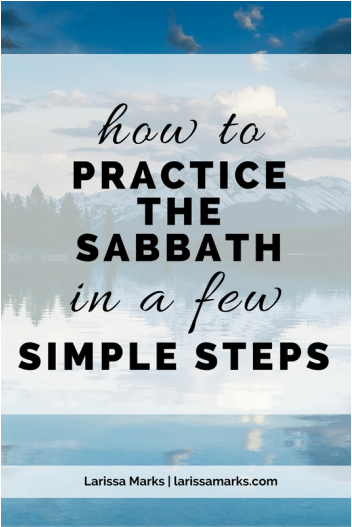|
In our day-to-day lives, we can get caught up in work, responsibilities, and everyday stress. A big challenge for many people is knowing how to slow down, pay attention to our health, and practice good self-care. When we experience stress or fatigue, it can be a signal that we need to create some space for self-care activities to restore our health and well-being. If we don't practice the self-care we need, we may find ourselves on the verge of mental, emotional, or spiritual burnout. Self-care is simple, but it is not easy. It takes us choosing to intentionally make self-care and our own well-being a priority. But if we practice rhythms of self-care, we will be more able to live a sustainable, healthy life. I have compiled a list of 20 simple self-care activities that you can do. Do some of these self-care activities this week, and let them refresh and restore you. 1. Simplify your schedule. Are you over-committed? Ask yourself which activities are truly adding value to your life, and thoughtfully make space for those things. 2. Do something that energizes your body. Stretch, swim, run, do yoga, or whatever physical activity you enjoy. 3. Take a long, warm bath. While you're at it, light a candle, read a magazine, listen to soothing music. 4. Create a Gratitude List. Write down all the things that you're thankful for. 5. Get a massage. Enjoy it. 6. Unplug for a day. Go on a media and tech fast, and turn off the electronic devices. 7. Stretch. Find the kinks and tension spots in you body, and stretch them out. 8. Do something new. Have you been considering learning a new skill or trying a new hobby? Go for it. 9. Practice mini-meditation. Begin or end your day with a minute of deep breathing, and focused awareness of your body, thoughts, and feelings. 10. Dance it out. Put on your favorite dance music, and shake your body. 11. Write or journal your thoughts. Take 10 minutes, and jot down whatever is on your mind. Mentally release those things as you write. Here are 6 Simple Questions For Self-Reflection. 12. Get quality time with a quality person. Hang out with someone who you love. If they're far away, give them a phone call. 13. Be still. Find a quiet place outside, and embrace the stillness. 14. Practice a full day of Sabbath rest. Take a full day to rest and rejuvenate. 15. De-clutter. Choose a place - your email inbox, your desk, a closet - and get rid of the excess and junk. 16. Do an activity mindfully and slowly. Savor the moment, and experience your activity with attentiveness. 17. Take a walk. Explore your area at a leisurely pace. 18. Reflect on your personal mission statement. If you don't have a personal mission statement, create one. 19. Enjoy a piece of chocolate or a glass of wine. Better yet, enjoy both together. 20. Sleep. Take a nap, go to bed earlier, give your body some extra rest. What is one thing you can do today to practice self-care? How do you generally make space for self-care in your daily life? Share in the comments. For further reading, check out these related posts: How to Use the Wheel of Life For Personal Growth 10 Practical Ideas For Your Spiritual Growth If you are looking for guidance for your spiritual health and growth, read here about how I can work with you as a spiritual director. "Remember the Sabbath day by keeping it holy." Exodus 20:8 God instructs his people to observe the Sabbath in the ten commandments, some of the most well-known verses in the Bible. So what is the Sabbath, and how is is relevant to us today? How can we remember the Sabbath day to keep it holy? I used to think Sabbath was an archaic, outdated practice meant for the Old Testament Israelites. In my church, no one talked about Sabbath, let alone actually practice it. One day a spiritual mentor, Una, mentioned to me that one of her favorite ways to connect with God was through her weekly Sabbath. She talked about Sabbath as a beautiful practice of rest, reflection, and soul care. Intrigued by Una's experience of Sabbath, I blocked out an entire day to Sabbath. I soon recognized what a wonderful gift it was. Each week thereafter, I committed to practicing the Sabbath. It became a lifeline for my soul. Each time I practiced the Sabbath, I experienced God's presence in powerful ways, learned how to receive deeper rest, retreated from life's busyness and anxieties, and was able to pay more attention to God's voice. What is the Sabbath? Sabbath is a weekly day of rest and worship, created by God as a gift and grace to us. It allows us to clear away distractions from our lives so we can rest and experience God’s grace in a new way. On the Sabbath, we are invited into worship, peace, relationships, celebration and thankfulness. How can we practice the Sabbath? When we have decided to observe a Sabbath, we need to address two practical questions:
How you answer these questions will be shaped by your present situation and season of life. What is your work at this time? Whether it is a paid job, housework, or any “to do” list items, abstain from whatever doesn’t feel peaceful. In terms of what to do during a Sabbath, embrace activities that are restful, worshipful, and life-giving. Sabbath keeping involves both praying and playing. Below are some suggestions:
Spend some time praying about what might be healthy and life-giving for you to do on the Sabbath. Ask God for guidance as you practice Sabbath keeping. If Sabbath is a new rhythm for you, make a plan and follow it for 3 to 6 months. Resist the urge to analyze during that period; simply receive and experience the gift of Sabbath. ACTION & PRACTICE Create space for a Sabbath in this next week or month. Make some time before your Sabbath day to think about what you will do (and not do). You can print a free PDF version of my Sabbath guide. For further reading: Sabbath: Finding Rest, Renewal, and Delight In Our Busy Lives by Wayne Muller Sabbath Keeping by Lynne M. Baab How have you experienced Sabbath rest? Please share your questions or thoughts in the comments. As a spiritual director, the most common question people ask me is: How can I build and grow a relationship with God? That is what many of us are seeking, right? We want to grow a relationship with God that is deep, meaningful, and transformative. If we want that kind of relationship with God, the good news for us is that there is a very practical and attainable way. The way to grow a relationship with God is through practicing spiritual disciplines. What are spiritual disciplines? Spiritual disciplines are activities and practices that we do that lead to spiritual growth. They are habits of devotion, worship, and experiential spirituality that create space for God's Spirit to dwell in us and change us. In the Bible, and throughout the history of Christianity, people have practiced spiritual disciplines in order to be with God and become like God. Spiritual disciplines make way for the transforming work and presence of God. As we seek to grow spiritually, disciplines have the potential to build a great foundation for our spiritual growth and development. Regular practices such as prayer, silence and solitude, and regular times with spiritual companions are all spaces where we meet with God. 1 Timothy 4:7 says, "Discipline yourself for the purpose of godliness." In other words, teach yourself to walk in the way of God. Take practical, intentional steps to allow the fruit of God's Spirit to be birthed in and through you. What are examples of spiritual disciplines? In we look at the Bible, there are many spiritual disciplines that we can find. The people of God tithe money, fast from food, keep the Sabbath day of rest, worship through music and dance, seek God through solitude and silence. I believe that there is something beautiful and unique about these disciplines, as they are activities that the people of God have practiced for generations. I also believe that there is no limit to the activities we can do to experience deepening intimacy and relationship with God. God is a mysterious, creative being, and he designed each of us to have a unique relationship with him. So What Counts as a Spiritual Discipline? Pretty much any activity that leads to knowing, experiencing, and loving God. Here are some spiritual disciplines common in the Christian faith:
Where can you start? Maybe you already practice spiritual disciplines with some regularity. Or maybe you are new to the concept spiritual disciplines. No matter where you are, below are some questions to help you grow your relationship with God through spiritual disciplines. ACTION AND PRACTICE Take some time to reflect and pray with God using the following questions:
A few thoughts as you put your spiritual disciplines into practice... Try a few disciplines for a month or two. After you've tried something for a while, you might have the desire to move on and try something different. Listen to God and your soul. Allow your practices to be in response to God's invitation to you rather than a list of "shoulds." In times when I feel stuck in a spiritual rut, I will ask God the question, "What are you inviting me to do? How are you compelling me to make space for your presence?" Be gentle and gracious with yourself. Instead of aiming for perfection and getting frustrated at any missteps, see the practice of spiritual disciplines as a journey of learning. Hear the words of Jesus in Matthew 11:29, "Take my yoke upon you and learn from me, for I am gentle and humble in heart, and you will find rest for your souls." Jesus is a patient and gentle teacher. May we each find ourselves travelling further along the spiritual journey. There are many books that discuss spiritual disciplines in more depth, including these three of my favorites:
What spiritual disciplines and activities do you practice? What is a spiritual discipline that particularly helps you encounter God? Please share in the comments. Sign up for my email newsletter Notes From Larissa.
|
WELCOMEHi, I'm Larissa. I am an artist and spiritual director on the island of O'ahu in Hawai'i.
SEARCH THE BLOGSUBSCRIBESign up for my email newsletter Notes From Larissa.
TOP POSTSCATEGORIES
All
ARCHIVES
March 2024
|




